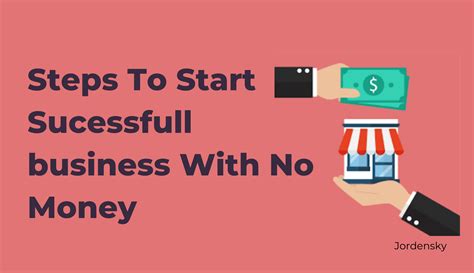How To Start A Business Without Money: A Practical Guide
Starting a business often conjures images of hefty investments and substantial capital. But what if you're brimming with ideas but lacking the financial resources? Don't despair! Many successful businesses began with little to no upfront investment. This guide explores practical strategies to launch your venture without breaking the bank.
Leveraging Your Existing Skills and Assets
Before diving into funding strategies, consider what you already possess:
Identify Your Expertise:
What are you exceptionally good at? What problems can you solve effectively? Your skills are your most valuable asset. Can you write, design, code, cook, clean, or offer consulting services? These skills can be directly monetized.
Inventory Your Possessions:
Do you have equipment or tools that could be used for your business? Perhaps an extra computer, a camera, or even crafting supplies. Putting these to use can reduce initial expenses considerably.
Low-Cost Business Models to Consider:
Several business models require minimal upfront investment:
Service-Based Businesses:
These are perfect for beginners. Examples include:
- Freelancing: Offer your skills (writing, graphic design, virtual assistance) on platforms like Upwork or Fiverr.
- Consulting: Leverage your expertise to advise clients in your area of knowledge.
- Tutoring/Coaching: Share your knowledge and skills by tutoring students or coaching individuals.
- Cleaning Services: A classic low-cost business requiring minimal equipment.
Digital Businesses:
The internet opens a world of possibilities:
- Blogging/Vlogging: Create content and monetize it through advertising, affiliate marketing, or selling digital products.
- E-commerce (Dropshipping): Sell products online without holding inventory. Platforms like Shopify make this relatively easy. Note: While dropshipping requires minimal upfront investment in inventory, marketing and advertising costs can still be significant.
- Online Courses/Workshops: Share your expertise by creating and selling online courses or workshops through platforms like Udemy or Teachable.
Funding Your Business Without Loans:
While avoiding loans is ideal initially, you might need some funding eventually:
Bootstrapping:
This involves using personal savings, income from a part-time job, or revenue generated from early sales to fund your business. It's a slow but steady approach.
Crowdfunding:
Platforms like Kickstarter or Indiegogo allow you to raise funds from a large number of people by showcasing your business idea and offering rewards in return for their contributions.
Bartering/Trading:
Exchange your services or goods for other services or goods needed for your business. This can be a great way to build relationships and acquire necessary resources.
Marketing on a Budget:
Marketing is crucial, even without a large budget:
Social Media Marketing:
Utilize free social media platforms like Facebook, Instagram, Twitter, and TikTok to reach potential customers organically. Focus on creating high-quality content and engaging with your audience.
Content Marketing:
Create valuable and informative content (blog posts, articles, videos) that attracts your target audience and establishes you as an expert in your field.
Networking:
Attend industry events, connect with potential clients and partners online, and build relationships within your community.
Conclusion:
Starting a business without money requires creativity, resourcefulness, and a strong work ethic. By focusing on your skills, leveraging low-cost business models, and employing smart marketing strategies, you can successfully launch your venture and build a thriving enterprise without significant upfront investment. Remember to start small, learn as you go, and adapt your strategies as needed. Your success depends on your dedication and perseverance.
